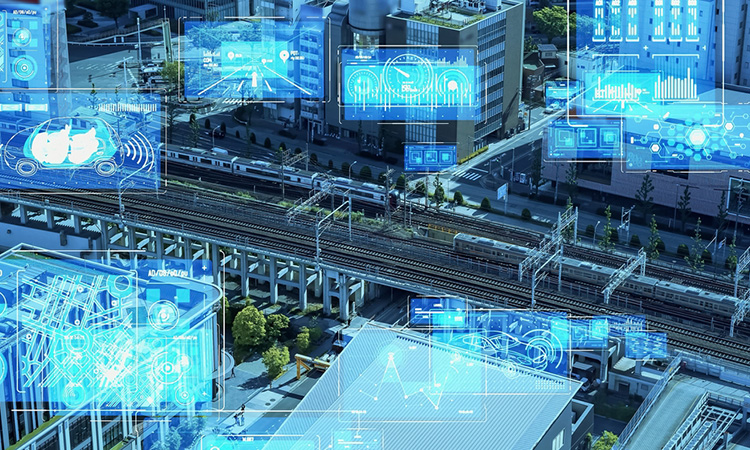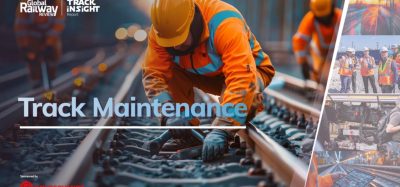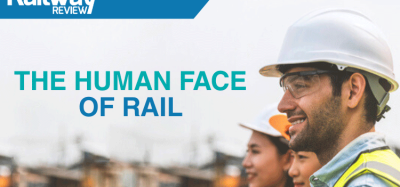Venturing into generative AI to enhance the passenger experience
Posted: 29 August 2024 | Kerry Phillipson - Arriva UK Trains | No comments yet
Kerry Phillipson, Retail Project Manager at Arriva UK Trains, speaks to Global Railway Review’s Halimah Haque about the transformative potential of generative artificial intelligence within the rail sector, with a key focus on enhancing information to improve customer interactions.


Considering Arriva UK Train’s initial steps into the realm of generative artificial intelligence (AI), what motivated the company to explore this technology?
At Arriva, we have been closely monitoring the development of ChatGPT and generative AI as it becomes more sophisticated, and we’re very aware of the potential to use this technology in a way that would help us to interact with our customers in a simplified and personalised way, giving them answers that are concise, while also providing additional information to enhance their experience. The technological benefits of personalisation present a huge opportunity for us in customer experience.
We’re very aware of the potential to use this technology in a way that would help us interact with our customers in a simplified and personalised way”
Currently, we’re exploring its potential by asking ourselves how it can relieve potential pain points in the customer journey. Understanding how we can use this technology to meet the changing needs of our customers and enhance their interactions with us is really exciting. We are all starting to use this technology in our day-to-day lives, which is changing our expectation of how information is provided to us. If you put that into the context of the the rail industry, it becomes challenging because there can be difficulties in presenting the right information at exactly the right time; but, with this technology, we could use large language models to create human-like information and generate meaningful responses in seconds.
We’ve been analysing what we think the customer journey’s going to be like in the next five years. Undoubtedly, customers will expect instant responses, they won’t be wanting to wait in a queue or hold on a hotline, and needing to press buttons anymore. We will need information to be available 24/7 – in any language, at any location – and generative AI can really support that ambition.
We’ve found that the technology is great at summarising information and this means that it could resolve some of the problems around transport information. We’ve been exploring how we can create a proof-of-concept that looks at all of the different user cases for information, and then how we can summarise that into a simple format.
It might seem like stating the obvious, but what customers want is the right information at the right time, and sometimes they just can’t get that. This is the basis of our business case, as we look to design a proof-of-concept trial using this technology. One of the most exciting things about this technology is that it has the power to grow and expand over time. You start by building up the knowledge base and then the AI bot will learn about your customer and their needs and become more sophisticated in the way that it provides information.
How does Arriva UK Trains plan to integrate generative AI into its existing customer interaction platforms, and what initial challenges do you anticipate in this integration process?
With this new technology, we’re looking at how we can streamline our processes and help the customer and our teams to be able to respond at the right time”
For the design of our proof-of-concept project, we’ve assessed what our customers’ needs are in terms of basic information. For instance, journey planning, travel inspiration, travel advice, information around cancellations or delays could be supplemented with proactive information. For example, if a customer journey is delayed, the AI bot might suggest an alternative route. By examining the queries that come through our customer help points and contact centres, we can see that the AI bot is able to answer basic questions on refunds and ticket information. This could help to support our teams, lowering call volumes and allowing our colleagues to focus on providing additional helpful information or resolving more complex cases. With this new technology, we’re looking at how we can streamline our processes and help the customer and our teams to be able to respond at the right time.
We’ve also been exploring how the booking experience might change in the future. For example, currently you may go to a website or app to plan your journey, which can sometimes be a confusing process with missing information, especially when dealing with discounted travel, rail cards, peak and off-peak ticket pricing etc. In the future, we’d like to see this technology not only provide you with the information that you’re looking for, but for the AI bot to also be able to say, “Okay, you travel on a regular basis, therefore you normally go to these stations. How about buying a ticket for this particular day or at this particular time?” And then, over time, actually link that into the purchase and booking flow.
Obviously, there are challenges. I think that one of the main challenges is around accuracy levels. We need to ensure that accuracy is spot-on, because we wouldn’t want an AI bot giving our customers the wrong information. One of the key things that we have learned from the proof-of-concept is that getting the data right is essential.
Right now, the cost versus benefit is hard to quantify because it’s such a new technology. In fact, it’s so new that there aren’t many suppliers or companies that are using it and, therefore, it’s important for us to build proof of concepts to support business cases for products powered by AI.


As Arriva UK Trains embarks on its journey with generative AI, how do you envisage this technology reshaping the passenger experience at stations and during their journey?
‘On-the-go’ travel information is what it’s all about”
‘On-the-go’ travel information is what it’s all about. As customers, we just want the right information at the right time, in our preferred language. For instance, if there are train delays or cancellations, it would be great if a customer could go to an AI-driven bot that can tell them that their train is delayed, explain the impact of that in terms of timing and provide suitable alternative options. This would require the bot to explore many different sources of information to ensure that it is collating everything in order to provide informed advice and assist the customer to make a decision and progress to the next stage – potentially booking/paying. Within our proof of concept, we have used several different data sources to create responses to questions that would be similar to those generated by a search engine. The beauty of this technology is that it can take any number of data sources, making it rich in the way it responds.
We think that AI could be an additional support for our customer contact centres, too. Using AI to provide the first-line of support for customers, and allowing the customer to receive this instantly on their device, in either speech or text and in their language of choice, could provide a smart and simple immediate solution. When we think about accessibility for hearing or sight impaired customers, AI could be a tremendous support. One of the things that it does really well is change from speech-to-text or text-to-speech and be recognised in any language.
The other angle to this is around personalised information. AI can learn about a customer’s interactions and almost predict what that customer might ask it for in the future, making it very proactive. For example, by knowing that you travel to work on a Tuesday, it might give you updates to say, “This train that you normally travel on is on time / delayed / departing from a different platform”. The AI bot will also allow the passenger to set parameters, so that it doesn’t become invasive – this would be part of the proactive tool. Another example would be for wheelchair users who need step-free access; that would be a criteria that’s plugged in. Equally, for someone who is partially sighted, or with hearing impairments, this technology could be a real game changer in terms of accessibility and being able to travel with confidence.
You’ve briefly touched upon this, but could you please provide examples of specific customer pain points or operational inefficiencies that you believe generative AI can address within the public transport sector, particularly in the context of Arriva UK Trains’ operating businesses?
We’re thinking around the different ticket categories within rail. There’s off-peak, peak, super off-peak, there are also a host of restriction codes. While the simplification of fares is being looked at, we have an opportunity to support customers by providing the right information when it comes to buying their ticket, so that they understand exactly what off-peak, peak and so on, means to them.
The information that this technology provides back to the customer won’t be limited to Arriva services or Arriva served stations. It’s a whole network and nationwide capability”
We’ve all experienced difficulty in knowing what ticket to buy, and this is further compounded when different stations have different rules and times of the day that they classify as peak or off-peak. So, the idea here would be for someone to be able to ask a travel assistant, “I want to buy this ticket, can I use this between these times?” and be able to get their answer immediately. At the moment, consumers can struggle to get this information and would have to go to a number of different sources.
The other pain point is around customer contact centres, particularly during busy times when being able to respond really quickly to queries or complaints is challenging. As I touched on earlier, generative AI can help to be that first line of support, before the call or query is then passed across to the contact centre. This would free up staff time to manage the more complex queries that might come in, relieving some of the volume that we currently have.
As I mentioned previously, this could be very helpful for visitors from other countries who would prefer to communicate in their own language – or find it easier to have the spoken word converted to text. This would allow us to assist a much broader range of people and deal with ever increasing call volumes. At present, chat bots just look for keywords in a question or message and base their answer only on those keywords, which is often frustrating for the customer. Generative AI takes into consideration the whole question; it looks at all of the information that it has in its knowledge base and then gives you a full, more human-like response.
We’re also not just focussing on information related to our own services; this technology could help customers travelling with any train operator, regardless of whether it’s an Arriva service or not. While Arriva UK Trains is looking at the AI proof-of-concept, the information that this technology provides back to the customer won’t be limited to Arriva services or Arriva served stations. It’s a whole network and nationwide capability, which could be scaled for other countries across Arriva’s European footprint.


You’ve mentioned accessibility, of course, and the importance of it. Considering the diverse range of customers and their preferences, how does Arriva plan to ensure that the implementation of generative AI enhances personalisation and can cater to the individual needs of passengers?
Each individual would be able to set the parameters of how it interacts with them. Generative AI can then really analyse and understand you as a customer, what your wants and preferences are”
I think I’ve already touched on the potential opportunity for more personalisation in the customer experience. The idea would be that, when you first use the tool, you set your preferences, allowing a passenger to view what they want and what they see as being important. Each individual would be able to set the parameters of how it interacts with them.
Generative AI can then really analyse and understand you as a customer, what your wants and preferences are. Say, for example, you’ve repeatedly asked it for information around the same time each week – “I want some travel inspiration. Where should I go this month or this week?” – then the AI bot will learn from that request and then, over time, it will start to give you more proactive information.
The fact that the user can then switch it to any language would be amazing, as we have a lot of tourists that visit our stations. Naturally, this presents difficulties because people are faced with a number of ticket vending machines (TVMs) at stations that they don’t necessarily know how to work, which makes it impossible for them to know which ticket they need to buy. So, an AI bot could be a great solution in this instance.
In what ways do you anticipate generative AI will impact the roles and responsibilities of customer contact teams at Arriva?
While AI is likely to have a role in the future, we don’t see it as replacing human interaction. It could be a really useful complement, but not a replacement”
I think it’s worth re-stating that we are at the start of our journey. At the moment, we are just exploring through proof-of-concepts, and we haven’t got any concrete plans to introduce generative AI yet. We need to know more about what the product roadmap might look like and how would it interact with our teams, how reliable it would be, how it can be used and scaled. There are many hurdles to overcome and technology is also moving very fast.
While AI is likely to have a role in the future, we don’t see it as replacing human interaction. It could be a really useful complement, but not a replacement. We are not looking to change the way that our teams work or reduce our levels of service – instead, this could be a way to manage increased volumes of enquiry and increase the levels of service that we can provide. We see generative AI as a tool for individuals to have the option to self-serve and as a bolt-on support for our customer contact centres.
As Arriva explores the possible introduction of generative AI, how do you foresee this technology shaping the future of rail, not just in terms of customer interactions, but also in terms of operational efficiency and service delivery?
We want to be creative with it and explore what the ‘art of the possible’ is and what could we potentially do. In my view, the possibilities are really endless”
I think we know that this technology is going to grow at a rapid speed. It’s very rare to see a completely new technology coming into the mainstream, requiring the whole industry to start from the same point. And it’s very interesting to see how quickly it will be adopted and which suppliers and technology providers are actually going to develop its use. We’ve seen some suppliers already start to put generative AI into their processes – and, in some cases, there’s a really strong case to do so, but this technology is still very new and there’s still lots of work to be done.
We must be astute to cyber-security as we explore this. Again, through the proof-of-concept, we’re learning about how to build generative AI bots, but we must ensure that we make it secure and we must also get the accuracy levels right. We would never release anything that wasn’t up to standard.
Over the next six months, I think that we will see lots of different suppliers within our industry and across different industries starting to explore and use these tools. In some cases, we won’t even know that they’re being used. We know that generative AI is very good at being able to generate relevant responses, so it’s highly likely that it will be used without us even knowing. When it comes to Arriva, our priority is to make sure that we find the most effective products for us, our employees and our customers.
We want to be creative with it and explore what the ‘art of the possible’ is and what could we potentially do. In my view, the possibilities are really endless.
Arriva is a leading provider of passenger transport across Europe, employing around 34,500 people and delivering around 1.6 billion passenger journeys across 10 European countries. With buses, trains, coaches, trams, waterbuses, bike-sharing systems and on-demand transport solutions, Arriva connects people and communities safely, reliably and sustainably, delivering these services in a better way, every day. The activities of Arriva are divided into four lines of business: UK Bus, UK Trains, The Netherlands and Mainland Europe. Arriva has operations in the Czech Republic, Croatia, Hungary, Italy, the Netherlands, Poland, Slovakia, Slovenia, Spain and the UK.


Kerry Phillipson is the Retail Project Manager at Arriva UK Trains. She has commercial responsibility for solutions that enable retail, revenue management and customer experience enhancements for Arriva’s UK trains division, which includes four train operating companies – Chiltern Railways, CrossCountry, Grand Central and Arriva Rail London. Kerry’s responsibilities span across both traditional and digital retail solutions that maximise commercial opportunities and enhance customer experience. This includes optimising the companies’ systems and exploring new product developments and market innovations, as well as technology enhancements.








